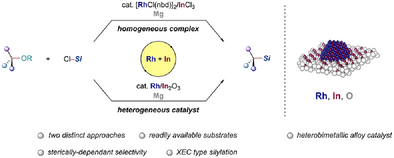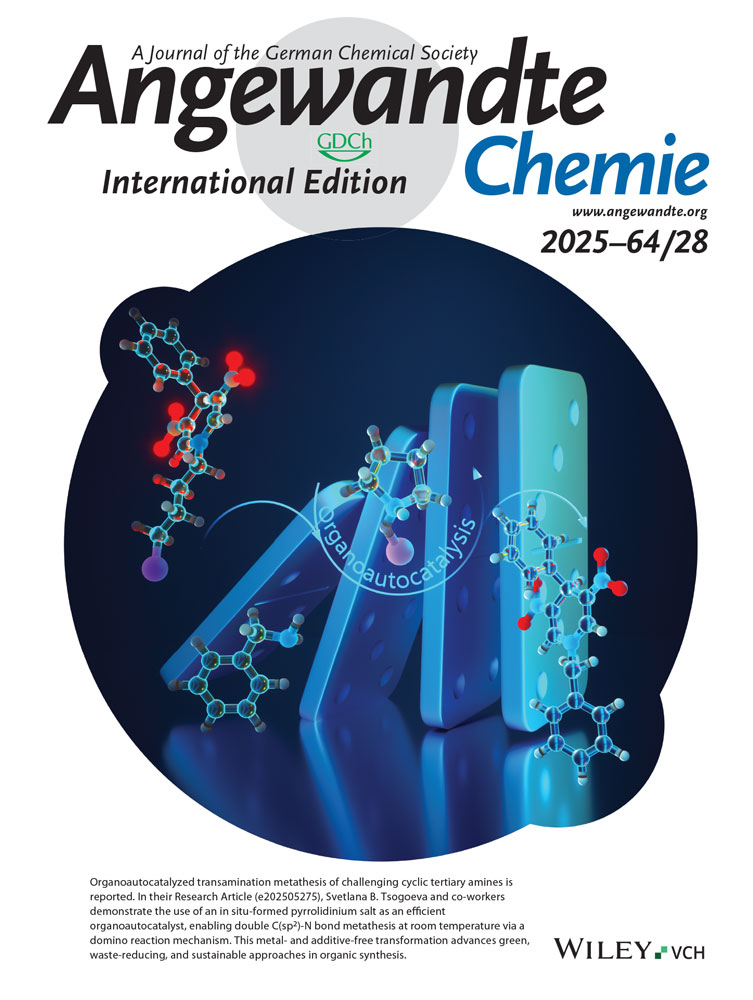Rhodium/Indium Heterobimetallic Alloy as an Effective Catalyst for Reductive C(sp3)─O Silylation of Ethers with Chlorosilanes
Graphical Abstract
Here, we describe the reductive C(sp3)─O bond silylation of ethers with chlorosilanes and magnesium reductants by cooperative rhodium and indium catalysis. This methodology allows the incorporation of silyl moieties into the C(sp3)─O bond of various unactivated cyclic and acyclic alkyl ethers using chlorotriorganosilanes. Not only the mixture of rhodium complex with indium reagent but also rhodium nanoparticles supported on indium oxide showed high catalytic activity, indicating a remarkable cooperative effect by the two metals. Notably, in both cases, the generation of rhodium/indium heterobimetallic alloy nanoparticles was revealed by mechanistic studies including XRD, XAS, and TEM imaging.
Abstract
C(sp3)─O bonds are ubiquitous in natural and synthetic small molecules as well as polymers. The methodology for functionalizing C(sp3)─O bonds is of great importance for reforming these molecular structures into high-value-added chemical feedstocks. Here, we describe the reductive C(sp3)─O bond silylation of ethers with chlorosilanes and magnesium reductants by cooperative rhodium and indium catalysis. This methodology allows the incorporation of silyl moieties into the C(sp3)─O bond of various unactivated cyclic and acyclic alkyl ethers using chlorotriorganosilanes. Not only the mixture of rhodium complex with indium reagent but also rhodium nanoparticles supported on indium oxide showed high catalytic activity, indicating a remarkable cooperative effect by the two metals. Notably, in both cases, the generation of rhodium/indium heterobimetallic alloy nanoparticles was revealed by mechanistic studies including XRD, XAS, and TEM imaging. This research advances the development of heterogeneous nanoparticle catalysts as an option to enable organic transformations that have not yet been achieved using homogeneous catalysts.
Conflict of Interests
The authors declare no conflict of interest.
Open Research
Data Availability Statement
The data that support the findings of this study are available in the Supporting Information of this article.





